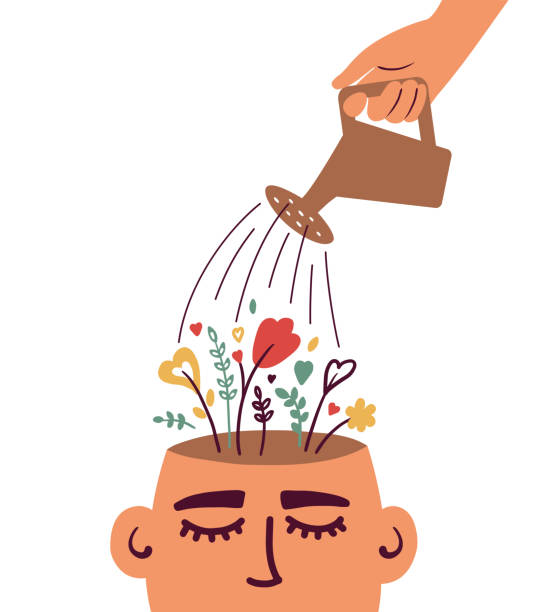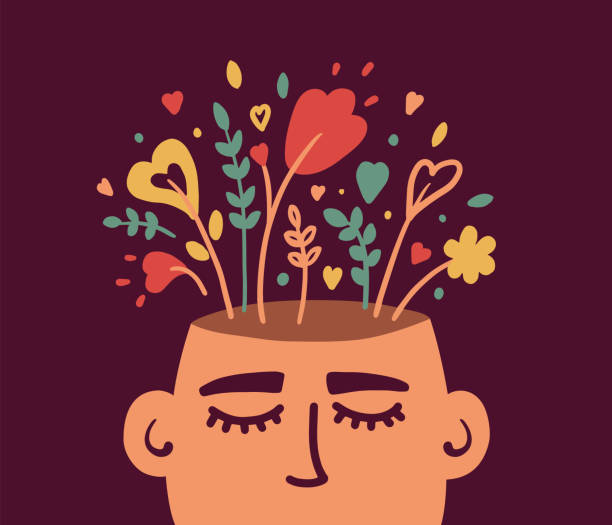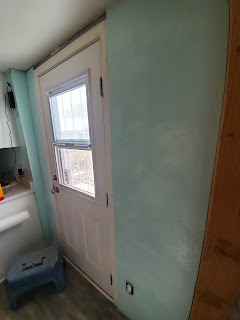When you hang around people accustomed to city life, be they conservative or liberal, there are certain things taken for granted and certain stereotypes bestowed upon those in rural areas. I have moved between these worlds during different chapters of my life. I want to provide some context about my experiences prior to sharing the insights I have gained from these variations of America. Today I am writing from our Apache County homestead.

I've been fortunate to live in owned homes most of my life. I lived in rented units for perhaps 1.5 years during college and during transitions (moving). I have never lived in the inner city where it is very densely populated (like in New York) - where condos or apartments are the norm for housing. I have lived in a condo - multi-unit dwelling - for about 4 years during college, but we owned it. During the time we were full-time RV'ing we paid lot rent (meaning we didn't own the land, but we did own our RV). Our longest term lot rental is in Mesa, AZ in a manufactured home community. Many of the manufactured homes are rented and there are a number of full-time RV sites sprinkled throughout the community. Here is the view from our window into our neighbor's yard.

The first 10 years of my life I lived in a neighborhood with fenced city yards dividing property lines of houses right next to each other. Our back yard bordered a public elementary school parking lot. The next 9 year my family moved to a rural setting. We could see our neighbors, but there was nature between us. For some years we had a larger piece of land (maybe an acre or more) and it bordered state land - all woods. From there we moved closer to a rural village. The houses were still very spread out, but they were slightly more dense. Here is a picture of camping in the woods in Michigan.

When I moved out of my parents' house I moved in with Husband and we lived in East Lansing, MI to attend college. I think this was the most dense urban setting I have ever experienced. In 1997 we moved to Arizona - to the megalopolis that makes up the greater Phoenix area & we stayed there (in various houses) for 9 years. However we also purchased our land in Apache County in 1998 and started making regular camping trips. Our land is located in a frontier community - which is even more rural than a rural community. In my field (public health) the difference between rural and frontier is determined by the number of medical professionals per capita. There are other ways to classify rural vs. frontier - for instance access to fresh food/grocery stores is often used. Another classification uses population density and high geographic remoteness. By all measures Apache County is frontier. In 2006 we moved to the county seat of Apache County and we stayed for three and a half years. Here is a map from the Arizona Department of Health services that shows the breakdown of urban, rural and frontier communities in AZ. Apache County is a long slice of the Northeast part of the state. Most of the county is Navajo Nation, but the Southern part (labeled Springerville/Eager) is off the reservation. The whole county is considered nonmetro. From there we moved to a rural community (Florence, AZ) for 7 years, did full-time RV'ing in urban/rural/frontier places for just over three years and then started making the transition to living at our homestead. So here is an approximate breakdown of my time living in various settings:
- Urban: 22 years
- Rural: 18 years
- Frontier: 5 years
So, as you can see I am more of a country girl than a city slicker! However, from the perspective of people who were born and raised in this area I am from the city. My point: because I have had both experiences I don't really belong fully to either group. This is valuable to me because I can pick and choose from the values of each group to knit my own identity.

So now to discuss fundamental insights I have gained from these varied experiences living and working in urban and rural environments - because the cultures are very different. Also, because I have clearly chosen the rural life over the urban, and because most media portrayals of rural life are produced by urban dwellers I prefer to highlight the values embraced by many rural dwellers. If you have not read "
Walden" by H. D. Thoreau, I highly recommend it. He really grasps the value of living closer to nature. To be honest I don't think all rural folks would think of it this way - but they certainly don't want to see buildings and pavement all over the place. We value the view, we value the animals that survive on the land. Sure, cities are good to visit if you need to shop at a number of different places, but for the most part living near stores is not worth losing the view. The soul can breathe in a less populated place - the facades we wear when we interact with too many people are forgotten. People are less polished, more genuine, interesting, and have
grit. With my city co-workers I hear about their vacations to rural areas - but they are tourists - they have not lived the experience so they have not let the lessons of rural living become a part of themselves.

Let's not forget that mere generations ago our forbearers lived with nature - how far back in your family tree do you have to go to find a farmer, rancher or other rural dweller? For me it was my great-great grandparents. Husband's grandfather raised cattle and commuted to the city to work in a factory. Cities only gained popularity over the past two centuries and now a bit more than half of the world's population lives in cities. This trend raises serious questions around sustainability because the urban dwellers live in an artificial world divorced from food production, energy production, water management, housing development. Urban residents contract out all of their basic needs (food, water, shelter, electricity) and would struggle mightily to provide for themselves. From my observations rural residents are generally more self-reliant.

Returning to the notion of grit (and yes, I love the movie
True Grit) I have learned what grit is when providing for myself - growing food, preserving and preparing food without fossil fuels, setting up a solar power plant, plumbing a solar water system, building a house. Because services are scarce in rural areas, rural residents learn to take care of themselves. They push through adversity, try different things & develop creative problem-solving skills. At different times Husband and I have sought assistance with various projects but many times the best, cheapest, quickest and sure way to get something done is to do it yourself. We all know this because we have been disappointed when services let us down - when our food is not prepared correctly at a restaurant, when a contractor does a poor job, when an installer cuts corners, or when a plumber or electrician overcharges for something we find out later was not that expensive. Though there is a myth perpetuated by city dwellers that specialization is preferable - in reality it creates unnecessary barriers between you and your fellow man. Where communities used to come together to build barns, we now sue contractors for not delivering on contracts. Where kids used to roam the land we now call CPS on our neighbor for their kid being at the park unsupervised.

In cities, governmental entities such as police, public health, & building inspectors enforce regulations enacted to make a safe environment for the community - the downside is that when the environment is engineered to protect people they end up living under the illusion that they are competent in being able to care for themselves, when in fact they are not. Most families wouldn't have the first clue how to deal with a prolonged power or water outage. Disruptions to food supplies in grocery stores would quickly result in lost meals because most families have no provisions and if they did they would not know how to prepare them. Families only recently had to learn how to care for and educate their children in the absence of the public school system. Since then the broad consensus is that the public school system must be preserved - families no longer have the ability or knowledge to care for and educate their kids for tomorrow.
At one time I compiled a list of all the services I relied upon. I reflected that if only one of them failed I would be utterly unable to care for myself or my children In the Pacific Northwest the power grid is melting due to the extreme heat caused by climate change. In the Southwest we lead the nation in wildfires and drought. Urbanization, industrial farming, and the fossil fuel industry are largely to blame. In rural communities the norm is conservativism - that is to conserve the way of life that has served their families for generations. They know how to raise gardens and animals. The communities are tight-knit and they help their neighbors. The city is a shiny illusion affording a standard of living never seen before, but the consequences are felt across the globe and it is unsustainable. The systems are crumbling and families don't know how to adapt when they were raised to rely on others for all of their basic needs. We are being displaced by climate change due to flooding, drought, extreme heat or fire. No one is immune - AZ is on fire. The smoke pollutes our air and further dries out the forests. Deforestation has promoted drought conditions. Where is the political will to re-green the overgrazed drought-stricken lands

The value of self-reliance is something urban dwellers can learn from their rural neighbors. Despite the doom and gloom we can each seek to develop our own self-reliance in many different ways. We can form closer bonds with our communities to make systemic, grassroots changes. We can consider whether our choices are sustainable. If our kids are not going to be able to live the lifestyle offered in the city then we can move to the country and start digging our hands in the dirt. With this said, it is true that rural areas suffer from "brain drain" seeing their best and brightest leave for college and not returning. I would argue that rural areas offer excellent opportunities for career advancement. Often vital positions requiring college degrees can go many months or a year without being filled. People living in rural areas do have a deep distrust of government - which may be understandable on multiple levels. First local leaders are often underqualified for their positions (due to brain drain) and secondly, there are many examples of how government systems have failed or are not addressing the lived experiences of residents due to identity politics. Finally rural residents have been left behind in terms of infrastructure (roads, water systems & cell towers), internet services, medical services, and other social safety net programs when unemployment rates are high. If elected leaders want to actually help people instead of seeking power and glory for themselves they can start by addressing the concerns of residents. Since that is unlikely to happen any time soon we have to turn to ourselves and to each other to find solutions in these apocalyptic times.
My approach has been to pursue self-reliance - to live within my means, eliminate debt, value the things I own & put them to use or sell/donate them to minimize and simplify, raise and educate my kids over the past few years, grow food, find peace in nature, lessen my own consumerism, manage our household power consumption (we use between 5-8 kwh per day), manage our water system (we use an average of 50-75 gallons of water each day for our family of 4), and overall live in a more sustainable way. These were not easy choices, but today when I see blackouts on the rise due to climate events and drought getting worse I am glad we made these choices. I am also most thankful for the 'get 'er done' attitude I have learned from my rural neighbors as I have learned how to be more self-reliant.





















































